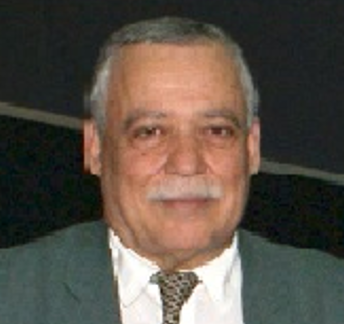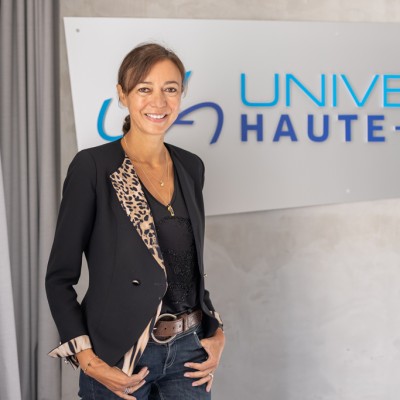Deadline for manuscript submissions: 30 October 2024.








The analysis of rheological properties of suspensions requires the use of models such as Einstein’s formulation for viscosity in dilute conditions, but its effectiveness diminishes in the context of concentrated suspensions. This study investigates the rheology of suspensions containing solid particles in aqueous media thickened with starch nanoparticles (SNP). The goal is to model the viscosity of these mixtures across a range of shear rates and varying amounts of SNP and SG hollow spheres (SGHP). Artificial neural networks (ANN) combined with swarm intelligence algorithms were used for viscosity modeling, utilizing 1104 data points. Key features include SNP proportion, SGHP content, log-transformed shear rate (LogSR), and log-transformed viscosity (LogViscosity) as an output. Three swarm algorithms—AntLion Optimizer (ALO), Particle Swarm Optimizer (PSO), and Dragonfly Algorithm (DA)—were evaluated for optimizing ANN hyperparameters. The ALO algorithm proved most effective, demonstrating strong convergence, exploration, and exploitation. Comparative analysis of ANN models revealed the superior performance of ANN-ALO, with an R2 of 0.9861, mean absolute error (MAE) of 0.1013, root mean absolute error (RMSE) of 0.1356, and mean absolute percentage error (MAPE) of 3.198%. While all models showed high predictive accuracy, the ANN-PSO model had more limitations. These findings enhance understanding of starch suspension rheology, offering potential applications in materials science.
Multi-objective optimization (MOO) techniques are crucial in addressing complex engineering problems with conflicting objectives, particularly in pharmaceutical applications. This study focuses on optimizing a biodegradable micro-polymeric carrier system for drug delivery, specifically maximizing the encapsulation efficiency and drug release of Candesartan Cilexetil antihypertensive drug. Achieving a balance between these two goals is essential, as higher encapsulation efficiency ensures adequate drug loading. In contrast, optimal drug release rates are critical for maintaining bioavailability and achieving therapeutic efficacy. Using response surface models to formulate the problem definition, five prominent MOO algorithms were employed: NSGA-III, MOEAD, RVEA, C-TAEA, and AGE-MOEA. The optimization process aimed to generate Pareto fronts representing compromise solutions between encapsulation efficiency and drug release. The results revealed inherent conflicts between objectives: increasing encapsulation efficiency often came at the cost of reducing the drug release rate. Evaluation of MOO algorithms using performance metrics such as hypervolume, generational distance, inverted generational distance, spacing, maximum spread, and spread metric provided insights into their strengths and weaknesses. Among the evaluated algorithms, NSGA-III emerged as the top performer, achieving a Weighted Sum Method (WSM) score of 82.0776, followed closely by MOEAD with a WSM score of 80.8869. RVEA, C-TAEA, and AGE-MOEA also demonstrated competitive formulation quality, albeit with slightly lower WSM scores. In conclusion, the study underscores the importance of MOO techniques in optimizing pharmaceutical formulations, providing valuable insights for decision-makers in selecting optimal formulations.
In response to the growing environmental threats and pollution linked to synthetic plastics, current scientific inquiry is prioritizing the advancement of biodegradable materials. In this context, this study investigates the possibility of developing fully biodegradable materials using plant fibers extracted from the Diss plant (Ampelodesmos mauritanicus) as reinforcement in poly(3-hydroxybutyrate-co-3-hydroxyvalerate) (PHBV)-based biocomposites. The biocomposites were prepared by melt blending in the following weight ratio: PHBV/Diss fibers 80/20. The chemical structure of Diss fibers was characterized by Fourier transform infrared spectroscopy (FTIR) and X-ray fluorescence spectrometry (XRF). The impact of Diss fibers on the mechanical properties of biocomposites has also been investigated in comparison to neat PHBV. FTIR and XRF analyses identified cellulose, hemicellulose, and lignin as the main components of Diss fibers. On the other hand, the results showed a significant enhancement of Young’s modulus (⁓21%) of PHBV/DF biocomposites in comparison to neat PHBV due to a better dispersion of the fibers in the matrix, as confirmed by atomic force microscopy (AFM) images.
In this work, Cobalt oxide nanoparticles (Co3O4·NPs) were synthesized via a simple sonochemical reaction by using polyethylene glycol (PEG) as a surfactant. Structural, morphological and spectroscopic analysis of obtained powder (Co3O4·NPs) was investigated by X-ray diffraction, FTIR spectroscopy and scanning electron microscope (SEM). The nanocrystalline nature of the sample was confirmed by XRD, which exhibits the cubic face-centered normal spinel structure of (Co3O4·NPs) and the space group of Fd-3m with the average crystallite size around 15 nm. FTIR spectrum shows two strong absorption bands of (Co+2–O) and (Co+3–O) which confirm the spinel structure of Co3O4·NPs. Moreover, SEM micrographs showed that the agglomeration of the nanoparticles was reduced by the addition of (PEG) surfactant and UV-Vis was used to study the synthesized material’s optical properties. The Co3O4 band gap ranged around 2.2 and 3.5 eV.
The structure and thermophysical properties of polymer blends polyamide 6/high-density polyethylene with component ratios of 70:30, 45:55 and 30:70, which not only provide phase inversion of the blended polymers, but also the formation of an interpenetrating network, have been investigated by differential scanning calorimetry, scanning electron microscopy and light flash method. The data on the influence of blends composition on their mechanical properties, density, structure, temperature, as well as melting and crystallization heats of polymer components have been obtained. The regularities of changes in thermal diffusion, heat capacities and thermal conductivity coefficients of polyamide 6 and high-density polyethylene individually and as part of the blends in dependence on their composition and temperature have been established. A nonlinear increase of the thermal conductivity coefficient from temperature was revealed when melting a more easily melting component of the blend. It was found that the maximum increase in thermal conductivity occurs in the blend forming an interpenetrating network. A possible way of creating composites with adaptive thermal conductivity by melting one of the components of the blend is proposed.
The present work aims to examine the influence of designing mini channel heat sinks using Stereolithography (SLA) 3D printing. Stereolithography (SLA) is a common additive manufacturing technique. The internal mini channels of the heat sink are made of aluminium materials and the outer cover is made of commercial polymer. Three models of the mini channel heat sinks are considered. A constant heat flow is applied to the bottom wall of the heat sink, and water is used as a coolant. The flow and heat transfer were studied for different cooling speeds. The physical properties of the fluid provided good thermal performance for the heat sink, especially at increased flow rates. The acrylonitrile butadiene styrene (ABS) copolymer resin has shown its good insulator for the heat sink and has improved the performance of the heat sink. This study demonstrates that the ABS copolymer resin enhances the cooling of electronic components.
Along with the development of electric vehicles and electronic devices, all-solid-state batteries (ASSBs) have become the next-generation energy storage batteries, owing to their safety and chemical stability. Sulfide Solid Electrolytes (SSEs) are deemed to be crucial materials for ASSBs because of their ultrahigh ionic conductivity (10−3–10−2 S cm−1), but are still plagued by the narrow electrochemical window and poor interfacial stability. In this paper, we summarize our systematic research progress on sulfide SSEs from the view of how theoretical calculations and simulations play a crucial role in material design. First-principles calculation gives evidence of the structure’s stability and ion migration mechanism for electrolytes, MD and AIMD simulations provide insights for the dynamic diffusion behavior and the interface reaction mechanism. High-throughput screening and machine learning have accelerated new electrolyte designs. Scientists discovered Li10GeP2S12 and explored ion dynamics in a crystal lattice of that material. There are also material interface phenomena such as space charge layers and chemical breakdown. These problems can be managed by developing and tuning appropriate computational models to steer material doping and protective layer design. In this paper, we demonstrate that the combination of computer simulations and real experiments is valuable.
Among the known chalcones, dibenzyldieneacetone is an organic molecule that was synthesized in this study and encapsulated into the Ethyl cellulose matrix by solvent evaporation technique. Microencapsulation aims to shield the core material from environmental influences (like light, humidity, temperature, and oxygen), extend its shelf life, and enhance the product’s quality. The microsphere size distribution was determined using an optical microscope. The synthesis product, as well as the particles, were characterized by ultraviolet-visible, infrared, and XRD. This study allowed us to identify particle morphology, encapsulation rate, and particle size distribution.
The presented scientific research work is dedicated to solving the problem of obtaining polymer composite materials with various superior operational properties based on polyolefins and a number of natural mineral rocks characterized by their corresponding characteristics, and investigating the application possibilities of the created materials. In this regard, local natural mineral resources are prepared for research in laboratory conditions through technological processes and mixed with a polymer matrix using a physical-mechanical method. The resulting mixture is brought to a ready state for research and is introduced into the process. Composite samples created on the basis of polyolefin and mineral rock are sent for research in accordance with different ratios of the components that make up the composite. The goal is to find the optimal ratio and determine the material that reflects higher quality criteria. Research conducted in this direction has yielded positive results. Research work that meets the requirements of modern chemical science can be considered satisfactory from an ecological and economic perspective.
Carbon nanotubes (CNTs) are promising conductive additives for lithium-ion polymer (LiPo) batteries. The performance of lithium metal oxide cathodes is highly dependent on the properties of the conductive carbon additive. This study investigates the advantages of CNTs over conventional carbon black for this application. Material properties, including hardness, tensile strength, thermal conductivity, and electrical resistivity, were analyzed and compared using Ansys Granta (CES EduPack 2024 R2) software. The results demonstrate that CNTs are superior in tensile strength (110 MPa), hardness (50 HV), and thermal conductivity (210 W/m·°C). These properties enhance the mechanical integrity of the CNT-based cathode composite, leading to improved battery performance. Furthermore, the electrochemical behavior of CNT/LiNi0.5Co0.2Mn0.3O2 composite cathodes was investigated, focusing on the carbon precursor (methane vs. natural gas) and CNT diameter. At a current rate of 3 °C, multi-walled carbon nanotubes (MWCNTs) derived from methane delivered a specific capacity 20 mAh/g higher than those derived from natural gas. This indicates that methane-derived MWCNTs exhibit superior electrochemical performance, which is attributed to reduced polarization and a higher discharge potential. The study also revealed that MWCNTs with a smaller diameter (30–50 nm) performed better at high charge/discharge rates, owing to a higher number of primary particles per unit mass. This analysis aids in understanding material selection and its implications for battery design and lifecycle. The findings serve as a reference for future research exploring the use of CNTs in advanced battery materials.
The paper reviews the unique chemical properties of selenium, focusing on selenium-containing heterocycles and organoselenium chemistry. The present study undertakes a critical examination of synthetic strategies, ranging from classical nucleophilic selenation and transition-metal catalysis to emerging photo-redox and electrochemical approaches. The text goes on to highlight advanced characterisation techniques, with particular reference to the combination of 77Se NMR spectroscopy with DFT calculations and single-crystal X-ray diffraction for structural elucidation. The functional applications of these compounds are the subject of extensive discussion, including their role in enhancing the performance of sustainable organic photovoltaic (OPV) materials for renewable energy conversion, and their potential in biomedicine as TrxR inhibitors for cancer therapy and as photosensitizers in antibacterial applications. The present study places particular emphasis on the contribution of selenium-containing heterocycles to improving the power conversion efficiency (PCE) of solar devices. Finally, the review outlines future research directions and common challenges in this field, such as enhancing the sustainability of catalytic processes and addressing biosafety concerns associated with selenium-based reagents.